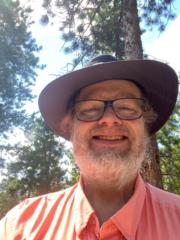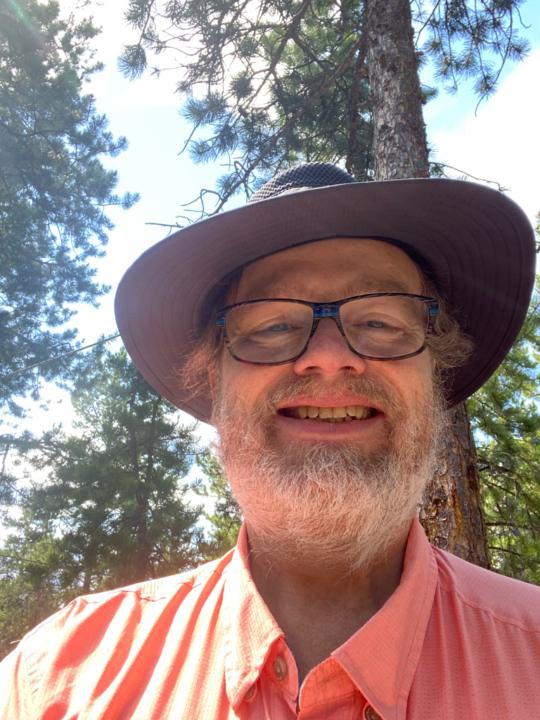Activity
Mon
Wed
Fri
Sun
Mar
Apr
May
Jun
Jul
Aug
Sep
Oct
Nov
Dec
Jan
Feb
What is this?
Less
More
Memberships
Reinvented Leaders 50+
18 members • $47/month
5 contributions to Reinvented Leaders 50+
Mission in Motion: My First Wedding Request (and It Was at a Bar)
I had barely unpacked. Just moved my young family across the country, fresh into my first role as a pastor. Boxes still sealed, books not even on shelves yet. That’s when a stranger walked up and told me:“You’re doing my wedding.” I blinked. “Excuse me?” He didn’t mean it as a request. He was insistent. And the wedding? It wasn’t at a church. It was at a bar. Here’s what I quickly learned: - He was 44. - She was 24. - And yes, she had once been his high school student. Not exactly the picture-perfect start for a young pastor hoping for a tidy ministry. But what could I do? I said yes. That day taught me two things right away: 1. You don’t get to choose where God asks you to serve. 2. Faithfulness starts before you feel ready. The wedding itself was … unconventional, to put it mildly. I felt in over my head, wondering what I had gotten myself into. But it planted a seed. Over time, I built a relationship with that man. We talked - We debated - We prayed. Slowly, he found his way back to church. Years later, he wasn’t just attending — he became a lay leader. When I look back, I see it clearly:That wedding in a bar was the doorway. The start of a long journey that ended in real transformation. Leaders, here’s the takeaway: 📌 You don’t always choose your assignments — sometimes they choose you. 📌 The most unorthodox doors can lead to the deepest fruit. 📌 Your “first” step of obedience often sets the tone for years of ministry ahead. Reflection for You:What was your first unexpected assignment? The one that didn’t fit the mold but ended up shaping your calling? Drop it in the comments — I’d love to hear your story.
1 like • Sep '25
I am unsure if I could place my finger on an “unexpected assignment”. For there have been many and in a wide variety of differing areas. As a young boy reading news of amazing things happening in space, I knew that I was going to be an astronaut. Everything I did was focused on that goal, through my teen years and into university. Some barriers that impacted me were small road bumps; i.e. not having a particular skill set, which were easily resolved by applying myself. Other blockages really forced me to examine who I was, and what I wanted to be. I decided one day in grade school that I did not like how my initial reaction to everything was anger. Why anger? Reacting in such away was only driving away those that I wanted to be around me. every time I responded with anger, I felt worse about myself afterward and made interacting with me awkward at best. It was a quick realization that by sharing of myself and helping others to become more for themselves was far more effective and rewarding. Though a quick realization, it was a long, slow, laborious change in behaviours and actions as my previous mode of living made it difficult for others to feel that I truly had their best intentions at heart. Along the way, I realized I did not want to be the astronaut as I saw it. I initially saw myself as directing everyone else to do what I saw was needed, I became one to give of myself, rather than giving orders. When I started my first job out of university, the interviewer said to me that I working with people without university degrees but had experience in the field. He asked how would I react. My response was that I could learn so much from them about how things really work, that after that learning together we could see the Theory and Ideal that I had learned and collaborate. The interviewer was amazed at my response, as every other candidate was stating I will teach them this or that, and in his words my response was the first “service oriented leadership response”. Service oriented leadership?? What a concept. That statement allowed me to see those that I respected most; whether in industry, education, faith, or friendship; were the one’s who chose to lead by enabling others to become better. Through my career, I have done many jobs with a very wide variety of skills. Most people ask me how can any of the jobs I held be consistent at all, being so different. My response was I have always done the same job - that of people development and problem solving; just the details had changed. Now, I see myself as a Celestial Navigator - an extension of being an astronaut; my role is to help others see the shining star that they already are.
Day 21 - Jesus isn’t recruiting superheroes!
Today’s verse — Matthew 11:28–30 (KJV) “Come unto me, all ye that labour and are heavy laden, and I will give you rest… For my yoke is easy, and my burden is light.” Jesus isn’t recruiting superheroes. He’s inviting tired people to walk beside Him. A “yoke” ties two oxen together so they share the load. His way doesn’t remove hard things; it replaces solo strain with shared strength, steady pace, and a Leader who carries the heavy end. How to live this today - Name the one burden you’re hauling alone. - Pray: “Jesus, I’m yoked with You on this.” - Set a gentler pace: one faithful step, not five frantic ones. - Ask for help where you’d normally just push through. “Lord, I’m tired. Teach me Your pace. Carry what I can’t, and guide me to do what I can. Amen.”
0 likes • Sep '25
Today’s society seems to demand that every individual be the superhero. Very slowly, there is a growing acceptance of being willing to ask for help. Even so, it is easy to look down upon someone asking for help. This verse says in some ways that many of the burdens we carry, are those burdens from and of the self. It simultaneously shows us as Christ the model to follow, and also that through Him, and clarity we can unload those burdens. There are no superheroes with fantastic powers, there are heroes within each of us. We do need to lighten our burdens so that we can in turn help others to lessen their burden. Even with His wandering in the desert, gave Christ the opportunity of reducing His burden. We can take care of ourselves through love and caring; thus extending that to those around us and to the world in whole .
Leadership In Practice: Money & Prayer
Leadership in Practice: Facing Payroll with Empty Pockets It was the mid-1980s, and our nonprofit was in trouble.Payroll was due in just a few days, and the math was simple: we didn’t have enough. For a young leader, it felt like a nightmare scenario. Staff were looking to me for answers. I was looking at the books and seeing red. And the enemy was whispering, “This is the end. You’re not cut out for this.” But here’s what we did: 1. We gathered the team for prayer.Not a panicked scramble. Not a strategy session with flip charts. Just honest, humble prayer. We named the need, reminded ourselves of God’s promises, and asked Him to make a way. 2. I picked up the phone and called three donors personally. No mass mailings. No polished campaign. Just a leader, voice-to-voice, sharing the urgency and the vision. I told them plainly: “We have payroll coming, and we need help.” 3. We trusted Philippians 4:19 over panic. “And my God will meet all your needs according to the riches of his glory in Christ Jesus.” That wasn’t a platitude. In that moment, it was oxygen. By Friday, something remarkable happened. Not only was payroll covered, but one of those donors stepped up as a monthly supporter. What felt like a cliff turned into a foundation. Looking back, here’s what that moment taught me about leading through financial crises: ✅ Pray first, act second. Strategy without surrender is just noise. ✅ Personal beats impersonal. People respond to relationship, not to form letters. ✅ Faith steadies leadership. Panic spreads, but faith calms and carries. That week shaped how I’ve faced every financial shortfall since.The pressure may look different today — bigger budgets, bigger staff — but the principles remain the same. Reflection for You:When you’ve faced a financial shortfall in your work, what carried you through — panic, or prayer? Drop your experience below. Someone else in this community may need your story today.
1 like • Sep '25
Often people will scoff at the idea of prayer. Yet everyone does it in one way or another. Prayer is seen as someone trying to connect with God. The most effective messenger is that which was created - you , the person in prayer. Some may call it meditation, some may call it reflection, some might even call it an Internal Strategy session; each had a different focus and different concept behind it, yet each is seeking to establish something higher than yourself. The process of prayer allows one to slow down their thoughts, find a path to peace, and ways to re-regulate. That is the key power of prayer. The solution is not going to come from Jesus walking up and handing an envelope, but with the connection to the spirit and the clarity the prayer had given you. Larry had taken the opportunity to connect with what’s was important; and from that approach the issues in a differing frame of reference. The prayer stops the cyclic thoughts of focusing on just the problem and gives the foundation for faith to find what you need.
Welcome our newest member - Mark Lindsay
Good morning Servant Leaders it is time to show our newest member some love with a warm welcome to @Mark Lindsay show him how it's done everyone!

Lessons From the Field: Clarity Before Activity
Back in 1992, I was posted to an addiction treatment center. I was in training to become an Executive Director — young, eager, and determined to make my mark. The center already had plenty of programs running. But instead of taking time to understand the heartbeat of the ministry, I jumped straight into “busy mode.” My thinking went something like this: If I can add more programs, more activity, more initiatives … people will see I’m a leader worth following. So I launched things. Meetings, projects, extra activities. From the outside, it looked like momentum. We were buzzing. People were busy. I was busy. But the truth? Our impact was shallow. Energy was scattered. Staff were stretched thin. And deep down, I knew we weren’t changing lives at the level we could have been. One day, a mentor sat me down and asked a question that hit me like a hammer:“What exactly has God called you to prioritize?” Not “what programs can you add? ”Not “how can you look productive? ”But what has God actually called you to focus on?" That question forced me to stop. To listen. To peel away the noise and look at what mattered most. When we cut back the extra programs and honed in on our true calling, something shifted. The impact deepened. Staff weren’t just working harder — they were working with purpose. And the people we served experienced real transformation. Here’s the lesson I carry to this day: 📌 Clarity before activity. Without clarity, activity is just motion. And motion without meaning changes nothing. Reflection for you: Where are you busy right now just for the sake of being busy? And if you stopped, prayed, and asked God what to prioritize — what would rise to the top? Drop your thoughts below. Someone else here might need to see your answer today.
1 like • Sep '25
Quite often, I run into people who decide that they “KNOW” what the problem is and they run out to solve the problem. Most often, they failed to identify what the problem is and solved the wrong thing. Alternately, they apply a very limited corrective action which addresses an effect of the problem, yet miss the needed solution completely. A client of mine was running around trying to fix everything he saw. He was rarely able to get all the way through one issue before another would spring up, and he would dash off to that one. The result was a series of different problems that fed into each other and an employee base that felt they have no agency nor trust. Begin with clarity, know what is important and what the “WHY” is, dig in deep to find the root cause of the issues, let the people with strengths in each area resolve the problems, and as a leader act as clearing the barriers you expect others to encounter. The clarity comes from strong reflection of knowing yourself, knowing the strengths of those around you, and be very clear on the values you want to support and the direction you want to go.
1-5 of 5
@mark-lindsay-3502
My driving motivation has always been people development and problem solving. I work to foster the skill and will of people to solve problems
Active 104d ago
Joined Sep 19, 2025
INFP


